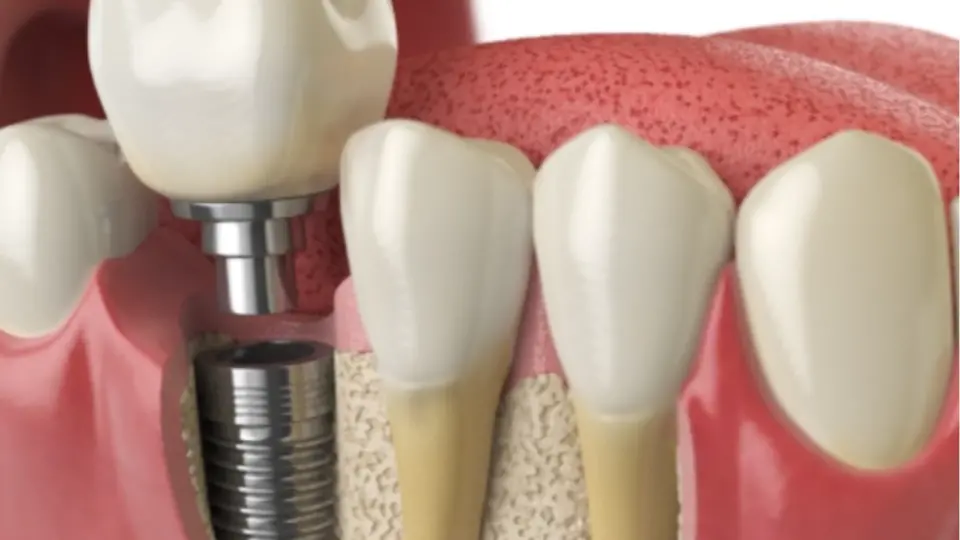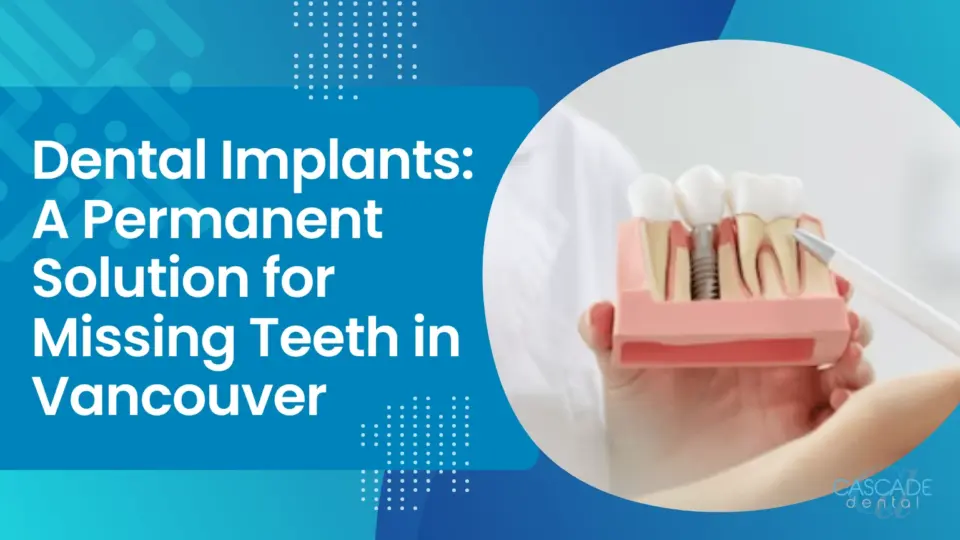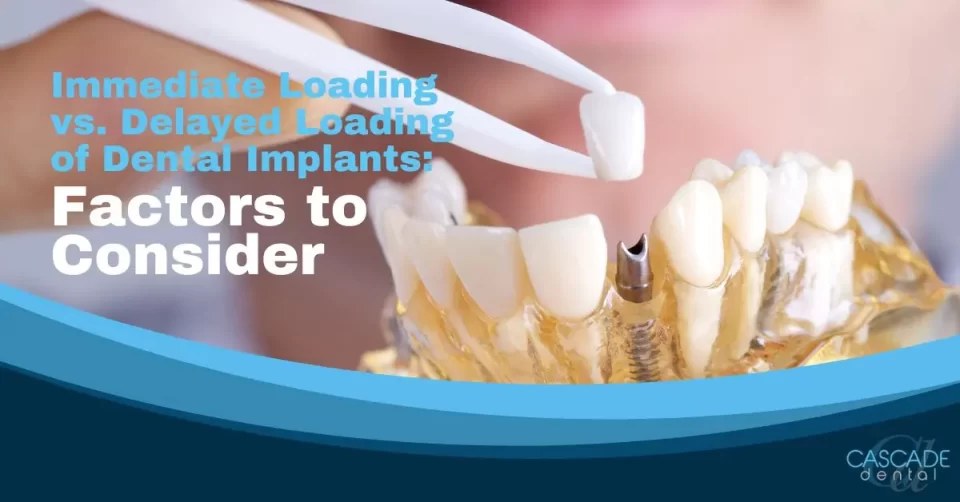A Root Canal, also known as endodontic treatment, is a technique in which a dental professional removes inflammatory or infected soft tissue inside a tooth. Dental pulp, a tissue that supplies the tooth’s root with nutrients and maintains its health, contains blood vessels, nerves, and connective tissue. A very painful pus-filled pocket (abscess) can develop at the tooth’s root when the dental pulp of a tooth is injured or starts to degenerate due to tooth damage, widespread infection, or extensive decay. A root canal operation is the only option to eliminate the discomfort, keep the tooth, and stop reinfection.
Although a Cascade Dental dentist is capable of doing root canals, this dental procedure frequently needs a root canal specialist or an endodontist, a specialist in the tooth pulp, which we have here at Cascade Dental. An endodontist’s additional training covers pain treatment, diagnosis, and other techniques required to preserve natural teeth.
How long does a root canal procedure take?
The Cascade Dental dentist can finish a straightforward root canal operation for one canal tooth in 30 to 60 minutes. However, it would be best if you planned on spending roughly 90 minutes in the dentist’s chair for the procedure. The removal, cleaning, and disinfection of your nerves make this treatment time-consuming.
While some teeth have several pulp canals, others only have one. As a result, Anesthesia, setup, and preparation might take a while. In addition, the location of your affected tooth affects how long your root canal procedure takes.
Molars
The back teeth in your mouth with four cusps, called molars, can have up to four canals, making them the most time-consuming teeth to undergo a root canal. A molar root canal may take 90 minutes or longer because just removing, cleaning, and filling the roots takes an hour.
Premolars
Premolars, which come before your molars but are located behind your anterior teeth, only have one or two roots. Depending on the nature of your tooth, a premolar root canal procedure could take an hour or even longer.
Incisors and Canines
The incisors and canine teeth are the teeth in the front of your mouth. As you chew, these teeth assist in tearing and chopping food.
Because they contain one root, they may be filled and treated more quickly during a root canal. Even so, root canal procedures on one of your front teeth might still take 45 to an hour without having a crown placed if you require one.
You’ll need to add at least an hour to your projected time if your Cascade Dental dentist can place a crown at the same visit as the root canal, which doesn’t happen frequently.
This only occurs if your dentist can create the crown in-office that same day. For example, after a root canal, your dentist might advise waiting a short while to place a permanent crown to ensure the tooth has fully recovered and there are no issues. Which is not going to be a problem here at Cascade Dental.
Who needs a root canal?
Every tooth has pulp, a live tissue that connects it to your bone and gums inside the root. Blood veins, nerves, and connective tissues are all in the pulp. Pulp and seeds may become affected in the following circumstances:
– Deep decay or a large filling that goes all the way down to your tooth’s root
– Repeated dental procedures on the same tooth
– A crack or chip in your tooth that extends to the pulp
– Physical trauma to your mouth, such as being hit in the face with a hard object, which can damage your tooth’s pulp
– Gum disease has led to bone loss around your tooth’s root, exposing it and making it vulnerable to infection
What are the symptoms of needing a root canal?
The most common symptom of needing a root canal is severe pain. The pain might:
– Be constant or come and go
– Be felt when you chew or bite down
– Be worse at night
– Radiate to your jaw, ear, or neck
Other symptoms might include:
– Sensitivity to hot and cold temperatures that lingers long after the stimulus has been removed
– Swelling and tenderness in your gums
– A small bump (pimple) on your gums
If you have any of these symptoms, see your dentist at Cascade Dental as soon as possible. They will be able to diagnose the problem and recommend treatment.
Do root canals hurt?
The discomfort associated with root canals is typically no worse than everyday operations because they are carried out under local anesthetic. Even though some tightness, numbness, or minor discomfort may linger for up to 48 hours following treatment—which is frequently controlled by over-the-counter painkillers—most patients can resume their regular activities the same day. The pain caused by the infected tooth is typically far worse than any pain experienced during a root canal.
Why do Root Canals Require Two Visits Occasionally?
Depending on the tooth, a root canal procedure may take two visits to the dentist.
The goal of the initial appointment will be to remove any damaged or infected tooth tissue. It’s essential to pay attention to this and proceed carefully. It might take a lot of time. The temporary antibacterial drug will be inserted into your tooth by your Cascade Dental dentist. It would be best if you didn’t experience dental pain after this initial visit.
In the second stage of treatment, your tooth’s interior must be thoroughly cleaned and disinfected, and sealed with a rubber-like substance. Finally, a permanent or temporary filling and perhaps a crown will be put in.
Are root canals necessary?
Teeth, unlike other body parts, are unable to recover on their own, especially after becoming contaminated. Infection and inflammation can spread to other tissues, teeth, or even other parts of your mouth if they are not treated. Because neither cleanings nor fillings can remove the injured pulp, a root canal is the only procedure that can save a natural tooth. The excision of the entire tooth is the sole option for a root canal. To retain good oral function, a tooth extraction requires replacing the missing tooth with an implant, crown, bridge, or partial denture. This adds to the cost, difficulty, and time required.
What occurs if my root canal doesn’t work?
Only 5% of all root canal procedures fail, making it a highly uncommon occurrence. However, if your initial root canal therapy is unsuccessful, an apicoectomy or endodontic retreatment may still be able to salvage the tooth. Retreatment involves removing the old filling material, cleaning the canal once again, then repainting and resealing the tooth. An apicoectomy involves cutting through the tooth’s root to remove the affected tissue, after which the root is sealed.
Call us!
Here at Cascade Dental, we want to ensure that you get the best care possible. If you think you might need a root canal, please give us a call. We’ll be happy to answer any questions you have and set up an appointment if necessary. So don’t suffer from dental pain—give us a call today!


